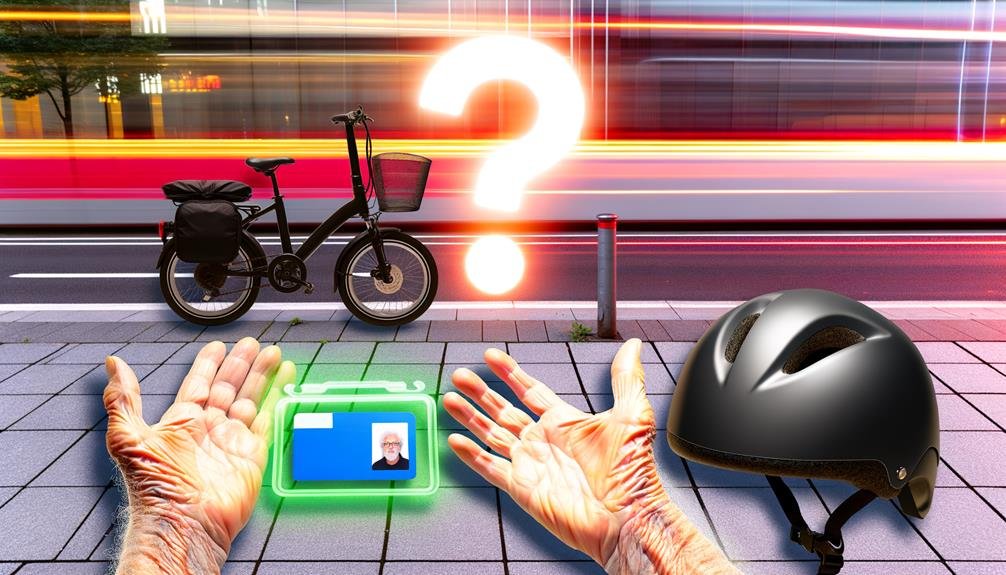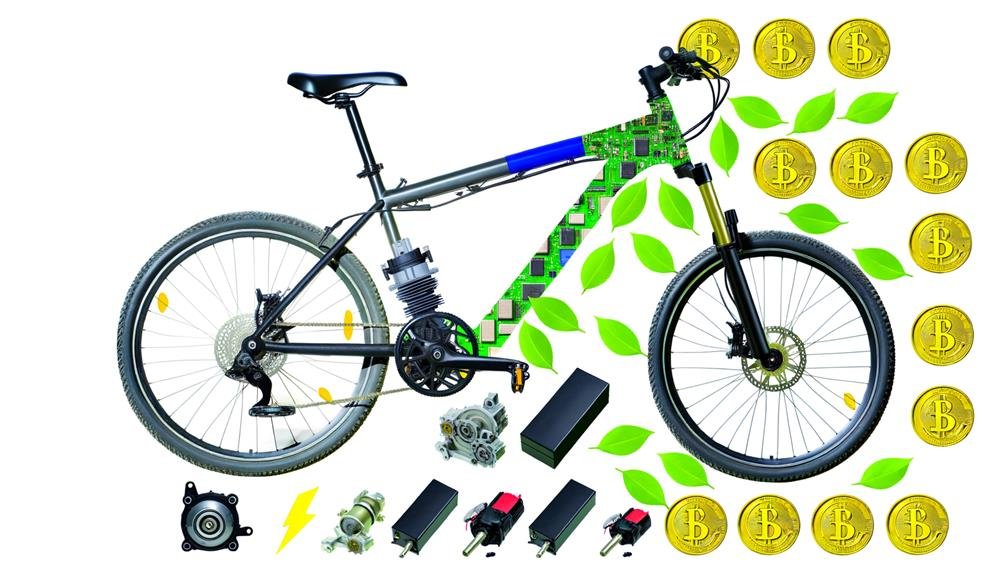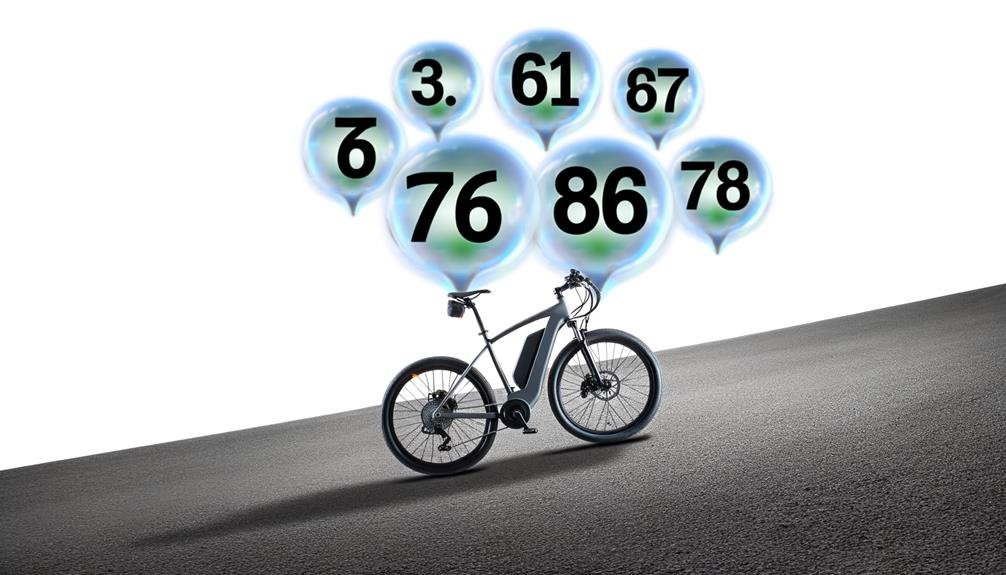Charles Miller is a veteran bike enthusiast with over 12 years of experience dealing with bikes as a mechanic. Despite immense love and expertise for...
As an avid cyclist and electric bike enthusiast, I've often wondered about the regulations surrounding these increasingly popular modes of transportation.
Are they treated like regular bicycles, free to roam without any formal paperwork? Or do they fall into the category of motorized vehicles that require registration and licensing?
It's not as straightforward as you might think, and the answer can differ depending on where you live.
So let's explore this further, shall we?
Key Takeaways
- Electric bike registration requirements vary by state, with some states not requiring registration at all.
- It is important to research and familiarize yourself with the specific laws and regulations regarding electric bike registration in your area.
- Registering your e-bike with the manufacturer not only validates the warranty but also helps in identifying and recovering stolen bikes.
- Following the registration process and complying with the law is essential for being part of a responsible electric bike community and ensuring the safety and security of your e-bike.
Understanding Electric Bike Classifications
Let's dive into the different classes of electric bikes, each defined by their unique features and restrictions. As part of the broader Electric Bike Laws, you'll need to understand the three classes that define an electric bicycle.
Firstly, there's the Class 1 electric bike. It's equipped with a pedal-assist motor that halts at 20 mph.
Then we've the Class 2, which includes a throttle for propulsion that also stops at 20 mph.
Lastly, there's the Class 3 electric bike, a bit faster, with a motor that assists when you're pedaling and tops out at 28 mph.
Now, why is it essential to know these classes? Well, they influence registration requirements. In some areas, you might need to register your eBike, especially if you operate a Class 3. And as ebike riders, we all want to ride legally and safely, right?
In Texas, for instance, electric bike riders should note that their eBikes must have a motor power of less than 750w. And luckily, there are no specific restrictions on throttle usage.
State-by-State Registration Requirements
Navigating the state-by-state registration requirements for electric bikes can seem like a daunting task, but it's crucial for ensuring you're riding legally. You see, not every state requires you to register your electric bike, and it all depends on their individual laws.
For instance, if you're in the state of Texas, you're in luck! Electric bikes don't need licensing and registration there. But don't get too comfortable, because that's not the case everywhere. Some states, like New Mexico, Rhode Island, and North Dakota, have different local regulations.
The key here is to never assume. Always check the state-by-state registration requirements specific to your area to make sure you're complying with the law. It's not just about avoiding a ticket; it's about being part of a responsible electric bike community.
We're all in this together, after all.
Steps for Registering Your E-bike

Before hitting the road with your new e-bike, it's essential to understand the steps involved in registering it. This process isn't just about following the rules; it's about joining the community of responsible eBike users who respect the regulations in place for the use of eBikes on our roads.
Firstly, familiarize yourself with how electric bicycles are regulated in your local area, as you might need a license to operate an eBike. This involves researching your state or jurisdiction's specific laws and requirements regarding the license and registration of an electric assisted bicycle.
Next, it's a good practice to register your eBike with the manufacturer. This validates your warranty and allows you to provide important details like the bike's motor serial number.
Security Benefits of E-bike Registration
When it comes to securing your e-bike, registering it provides a number of key benefits that you shouldn't overlook. Electric bikes are allowed on many state and local roads, but their use comes with responsibility, and one of these is registration. As a member of the e-bike community, you want to ensure that your bike is safe, secure, and recognized.
Here are some of the security benefits of registering your e-bike:
- Registering with the manufacturer validates your warranty and keeps a record of your bike's details. This is invaluable when it comes to servicing or replacing parts.
- If your e-bike is stolen, having it registered makes it easier for the police to identify and recover.
- In the unfortunate event of theft or damage, your insurance claims process is facilitated by proof of purchase and registration.
- Registering with the Bike Index, a global registry, boosts the chances of recovering your bike, should it be stolen.
Helmet and Age Regulations for E-bikes

Just as important as registering your e-bike, understanding the helmet and age regulations for e-bikes is crucial to ensure a safe and legal ride. Let's dive into these regulations to make sure we're all on the same page.
Riders under the age of 18 years must wear a helmet when riding an e-bike. It's not just a recommendation folks, it's a requirement. The helmet requirements don't stop there though – they extend to passengers too.
Now, onto age restrictions. Riders under 15 years of age are not allowed to operate Class 3 eBikes, except as passengers. The restrictions for eBikes can be a bit confusing, but that's why I'm here to guide you through it.
To further clarify, here's a handy table:
| eBike Classes | Age Restrictions & Helmet Requirements |
|---|---|
| Class 1 | Must pedal to activate motor, No age restrictions, Helmet is required for under 18 |
| Class 2 | Can use throttle without pedaling, No age restrictions, Helmet is required for under 18 |
| Class 3 | Max speed 28 mph, Riders under 15 can't operate, Helmet is required for under 18 |
Frequently Asked Questions
Do E-Bikes Need to Be Registered in Usa?
No, as an e-bike owner in the USA, I don't need to register my bike. This makes things simpler and lets us enjoy our rides without worrying about paperwork. Keep riding and stay safe!
Can I Ride an Electric Bike on the Road?
Sure, I can cruise on my electric bike on all roadways, trails, and bike paths in Texas. I don't need to register it either. However, I'm careful to keep off the sidewalks for safety.
What Class of Ebikes Are Legal in Minnesota?
I'm not entirely sure about Minnesota's specific laws, but generally speaking, Class 1, 2, and 3 ebikes are often street-legal without requiring registration. It's best to check with local authorities for the most accurate info.
Are E-Bikes Street Legal in Texas?
Yes, e-bikes are street legal in Texas. They don't need registration, allowing anyone to ride freely. Keep in mind, if you're under 18, you've gotta wear a helmet. Enjoy the freedom, Texan cyclists!
Conclusion
So, no need to sweat about registering your e-bike in Texas. But remember, laws can vary.
Did you know only about 1% of all U.S. states actually require e-bike registration? That's right, it's almost unheard of!
But remember, while you mightn't need to register, always check local regulations to keep things smooth and legal.
And hey, don't forget that helmet!

Charles Miller is a veteran bike enthusiast with over 12 years of experience dealing with bikes as a mechanic. Despite immense love and expertise for his Tacoma, he rides his Trek Ebike more. Anytime you meet him, you’ll either hear him talking about Bikes, or writing about all things bikes and cars on this blog.
More Posts


